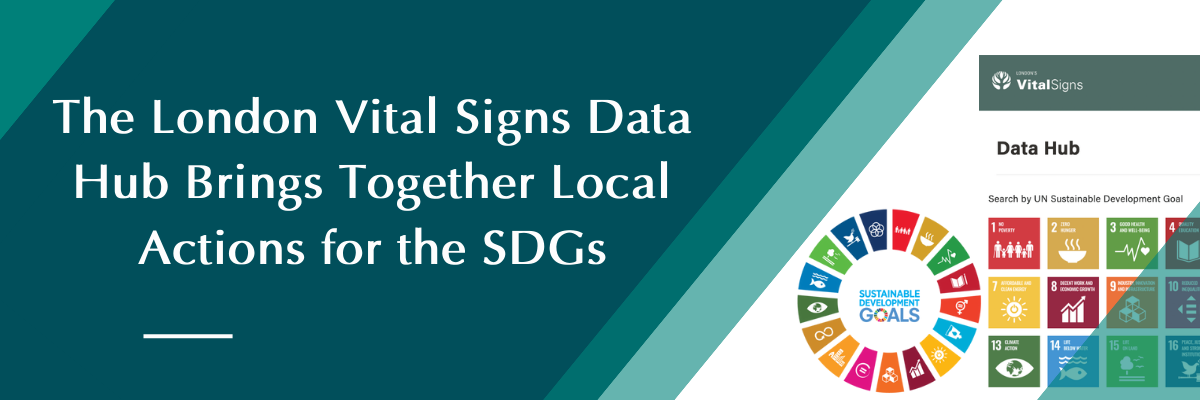
As part of the broader Vital Signs initiative overseen by the London Community Foundation, the London and Middlesex Vital Signs Data Hub emerged as a crucial element in tracking the progress of the Sustainable Development Goals (SDGs). The Hub collects data sources yearly, covering a wide range of issue areas from various organizations, including The National Health Survey, Canada Mortgage and Housing Corporation, and the Census. It tracks the progress of various indicators across different issue areas such as education, housing, gender equality and the environment. While these data may paint a picture of certain progress made in the community, it falls short in capturing the community’s actions in addressing these challenges. For instance, knowing the capacity of domestic violence shelters in the city was useful, but it didn’t necessarily indicate the need for such shelters. To bridge this gap, the London and Middlesex Vital Signs Data Hub started collecting data from local organizations like Anova and the London Coordinating Committee to End Woman Abuse, enabling advocates to use this information to push for policy changes or secure funding for critical services.
London and Middlesex Vital Signs Data Hub Engages the Community
“We’re in a fortunate position at the Foundation where we hear so much about all the good work being done in London and Middlesex, so it’s difficult to pinpoint any one thing as being the most inspiring. That said, you need to look no further than the Whole of Community System Response to Health and Homelessness in London to see the sort of hope and willingness to collaborate that nonprofits in London and Middlesex hold, and that will always be inspiring, regardless of the problem being tackled.”
-Matthew Brewer, Communications Manager at the London Community Foundation
Whether they are recording podcasts, writing blog posts, or contributing to the Data Hub, the Hub encourages the organizations involved in it to align their work with the SDGs. The Hub also proactively engages in outreach by having conversations with these groups, exploring how they incorporate the SDGs or Vital Signs into their projects, and encouraging the adoption of the SDG framework in their mission.
The Hub and the wider Vital Signs project acknowledges the importance of its partner organizations’ contributions and values the sharing of their expertise and experience as this project continues to gain traction as a catalyst for change in the community. Notably, Season Bieronski from London Cares Homeless Response Services, an organization that provides support to individuals who don’t have a safe place to stay, has actively shared her knowledge and experience with London Community Foundation’s donors and stakeholders through blog posts and podcast conversations in addition to sharing data. Beyond the organizations providing expertise and local data, the Hub’s work wouldn’t be feasible without the network and infrastructure established by Community Foundations of Canada, which consistently provides the Hub with high-quality data annually.
What’s Next for the London and Middlesex Vital Signs Data Hub?
The Hub will continue to extend its work to crafting more meaningful connections and collaborations within the community. As an interactive and dynamic platform, the Hub not only captures the progress of local issues but also fosters collaborations across different organizations, contributing to the overall well- being of the community.
“There are occasions where we make new connections through the Vital Signs project, such as when we connected with Sakeenah Canada, asking them to be part of a Vital Conversation on Racial Equality in 2022. Relationships like these are valuable both ways because our stakeholders get to hear from a new voice and perspective, and the organization can connect with us as a funder who wants to work with them and values their work.”
-Matthew Brewer, Communications Manager at the London Community Foundation
Thank you to Matthew Brewer and the team at London Community Foundation for collaborating on this story. To learn more about London and MiddlesexVital Signs Data Hub and explore local data points, blogs, videos and podcasts, please check out their website.
Article originally Posted on www.sdgcities.ca
